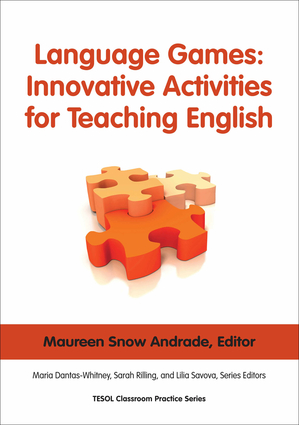Overview
ESOL teachers use language games to increase motivation, provide authentic and meaningful language practice, increase student engagement, and infuse the classroom with fun. This volume describes a variety of innovative games used today in language classrooms around the globe, reflecting different contexts and cultures. Chapters in this book demonstrate how both theory and practice inform our teaching approaches. Though some of the games focus primarily on the four traditional language skills, reading, writing, listening, and speaking, as well as the supporting areas of vocabulary and grammar, other games clearly have a different emphasis, such as critical thinking and content-based language instruction. Yet other chapters focus on objectives such as getting acquainted, or provide ideas for game templates that teachers can adapt for various purposes and types of content. This book stands apart in that the contributions reflect multiple classroom uses. Themes evident throughout the volume reflect pedagogical goals and practices for language learning, such as communicative competence, interaction, authenticity, skills integration, content emphasis, and collaboration.


